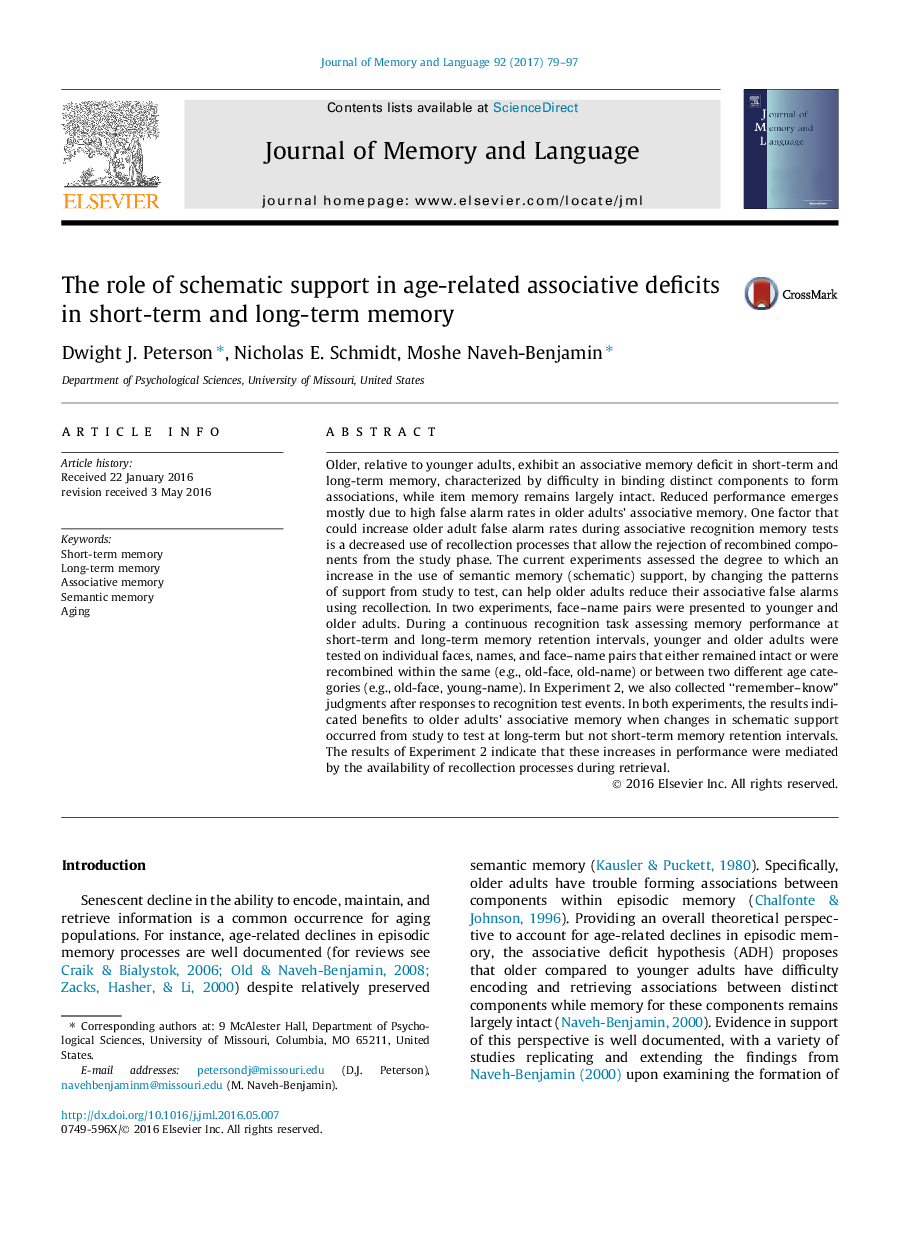| کد مقاله | کد نشریه | سال انتشار | مقاله انگلیسی | نسخه تمام متن |
|---|---|---|---|---|
| 931736 | 1474627 | 2017 | 19 صفحه PDF | دانلود رایگان |
• Age-related associative deficit observed in long-term but not short-term memory.
• Changes in schematic support from study to test reduced the age-related deficit.
• Benefits of schematic support driven by increasing access to recollection processes.
• Increased use of recollection processes improved older adults’ associative memory.
Older, relative to younger adults, exhibit an associative memory deficit in short-term and long-term memory, characterized by difficulty in binding distinct components to form associations, while item memory remains largely intact. Reduced performance emerges mostly due to high false alarm rates in older adults’ associative memory. One factor that could increase older adult false alarm rates during associative recognition memory tests is a decreased use of recollection processes that allow the rejection of recombined components from the study phase. The current experiments assessed the degree to which an increase in the use of semantic memory (schematic) support, by changing the patterns of support from study to test, can help older adults reduce their associative false alarms using recollection. In two experiments, face–name pairs were presented to younger and older adults. During a continuous recognition task assessing memory performance at short-term and long-term memory retention intervals, younger and older adults were tested on individual faces, names, and face–name pairs that either remained intact or were recombined within the same (e.g., old-face, old-name) or between two different age categories (e.g., old-face, young-name). In Experiment 2, we also collected “remember–know” judgments after responses to recognition test events. In both experiments, the results indicated benefits to older adults’ associative memory when changes in schematic support occurred from study to test at long-term but not short-term memory retention intervals. The results of Experiment 2 indicate that these increases in performance were mediated by the availability of recollection processes during retrieval.
Journal: Journal of Memory and Language - Volume 92, February 2017, Pages 79–97
